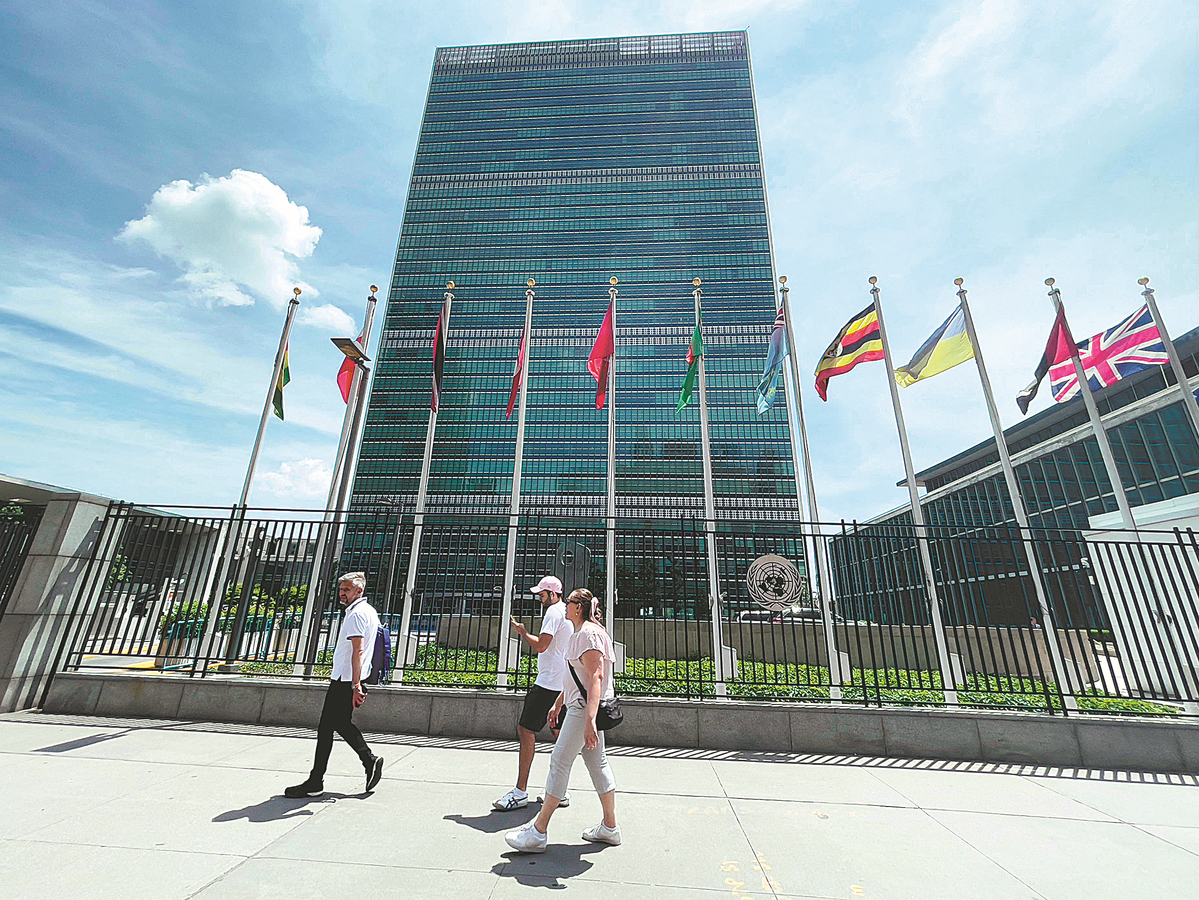Nation's voice at UN heard loud and clear

Translators, interpreters ensure accurate message is delivered

In the summer of 2018, Lu Yanjun had the chance to watch Chinese-language translators and interpreters working at the United Nations headquarters in New York.
During a two-month internship with the global organization's Chinese Translation Service, she saw how Chinese versions of UN documents and reports she read in her class each day were created.
Lu also observed Chinese interpreters operating from soundproof booths, conveying comments made by Chinese delegates to representatives from other countries.
Chinese is one of the UN's six official languages, the others being Arabic, English, French, Russian and Spanish. Correct interpretation and translation in spoken and written form enable clear and concise communication on issues of global importance.
Lu, who at the time was a student majoring in translation and interpretation at Beijing Foreign Studies University, said, "It was a valuable experience to work with a group of prestigious language specialists and see for myself how the UN operates and understand the role it plays in international relations."
"I feel very proud of the efforts my country has made in making Chinese an official UN language. This demonstrates China's status in global affairs, and I believe that UN documents need to be translated into Chinese so that more people know what the UN is doing."
Lu experienced a passionate and positive atmosphere at the UN headquarters, but before the People's Republic of China's legal rights were restored at the organization in 1971, little attention was paid to the work of Chinese-language professionals.
Chinese was established as a UN official language in 1946, when China had no voice at the international body. Representatives of the Taiwan authorities often took pride in showing off their English, so the UN's Chinese interpreters usually had almost nothing to do.
In those days, the Chinese translation service only selected short and relevant documents to translate into Chinese. As longer documents often could not be translated and proofread in time, Chinese staff members experienced low morale, the UN said on its website.
























